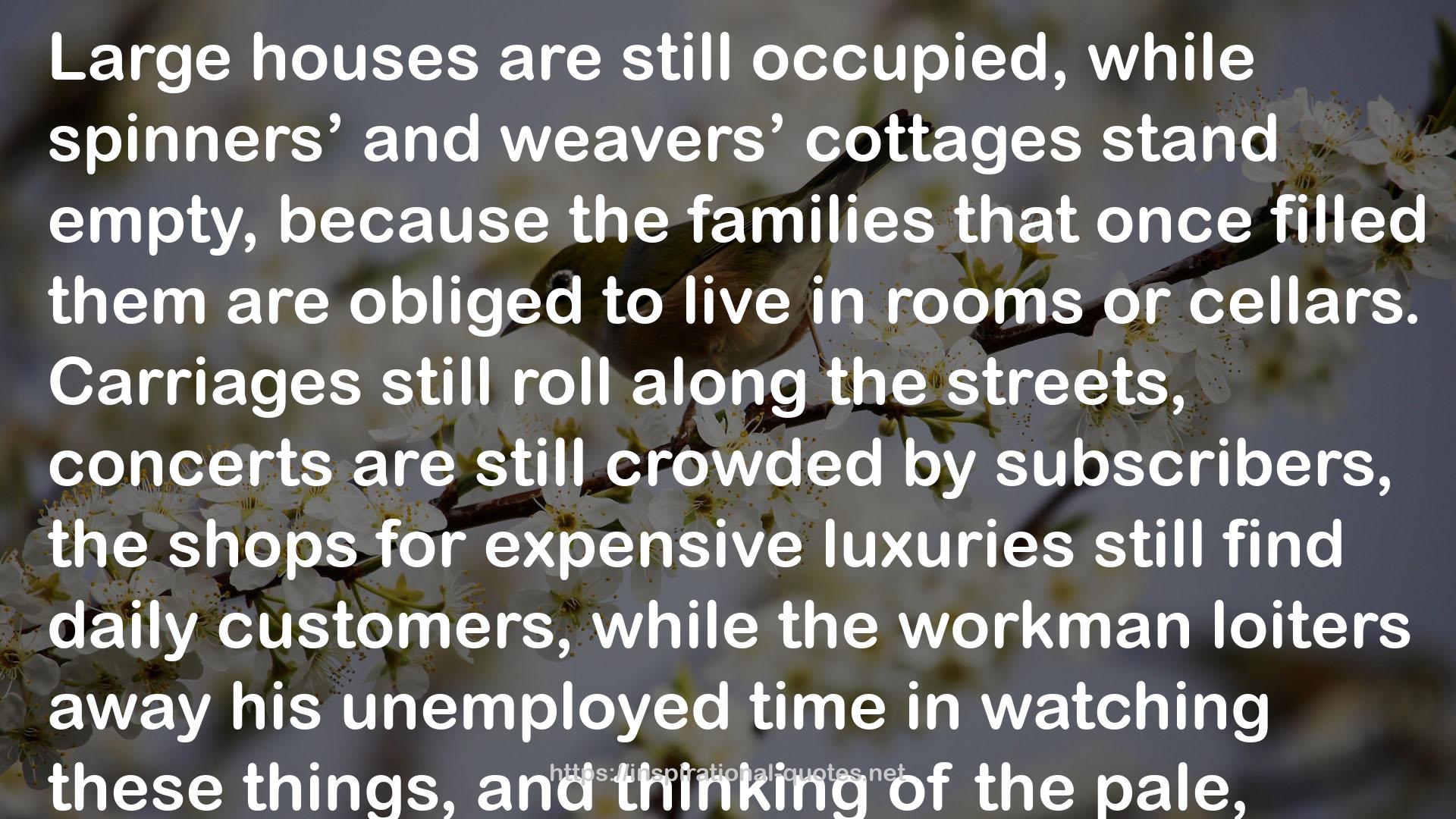" Large houses are still occupied, while spinners’ and weavers’ cottages stand empty, because the families that once filled them are obliged to live in rooms or cellars. Carriages still roll along the streets, concerts are still crowded by subscribers, the shops for expensive luxuries still find daily customers, while the workman loiters away his unemployed time in watching these things, and thinking of the pale, uncomplaining wife at home, and the wailing children asking in vain for enough of food — of the sinking health, of the dying life of those near and dear to him. The contrast is too great. Why should he alone suffer from bad times? I know that this is not really the case; and I know what is the truth in such matters; but what I wish to impress is what the workman feels and thinks. True, that with child-like improvidence, good times will often dissipate his grumbling, and make him forget all prudence and foresight. But there are earnest men among these people, men who have endured wrongs without complaining, but without ever forgetting or forgiving those whom (they believe) have caused all this woe. Among "
― Elizabeth Gaskell , The Complete Elizabeth Gaskell Collection
